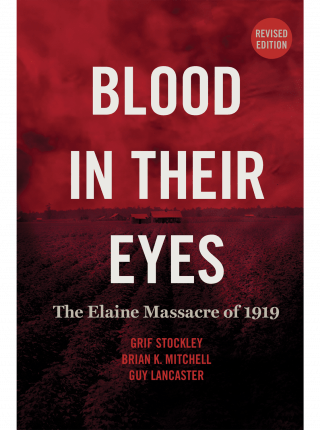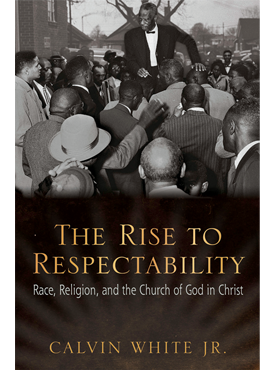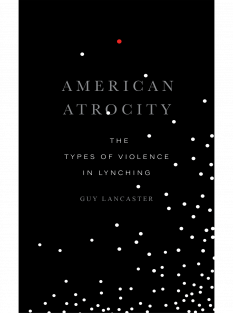Race, Labor, and Violence in the Delta examines the history of labor relations and racial conflict in the Mississippi Valley from the Civil War into the late twentieth century. This essay collection grew out of a conference marking the hundredth anniversary of one of the nation’s deadliest labor conflicts—the 1919 Elaine Massacre, during which white mobs ruthlessly slaughtered over two hundred African Americans across Phillips County, Arkansas, in response to a meeting of unionized Black sharecroppers. The essays here demonstrate that the brutality that unfolded in Phillips County was characteristic of the culture of race- and labor-based violence that prevailed in the century after the Civil War. They detail how Delta landowners began seeking cheap labor as soon as the slave system ended—securing a workforce by inflicting racial terror, eroding the Reconstruction Amendments in the courts, and obstructing federal financial-relief efforts. The result was a system of peonage that continued to exploit Blacks and poor whites for their labor, sometimes fatally. In response, laborers devised their own methods for sustaining themselves and their communities: forming unions, calling strikes, relocating, and occasionally operating outside the law. By shedding light on the broader context of the Elaine Massacre, Race, Labor, and Violence in the Delta reveals that the fight against white supremacy in the Delta was necessarily a fight for better working conditions, fair labor practices, and economic justice.
Race, Labor, and Violence in the Delta
$32.95
Essays to Mark the Centennial of the Elaine Massacre
Edited by Michael Pierce and Calvin White
6 x 9, 248 pages, index
May 2022
Available In:
Paper: $32.95 (978-1-68226-206-1)
Cloth: $69.95 (978-1-68226-205-4)
Michael Pierce is associate professor of history at the University of Arkansas, Fayetteville. He is the author of Striking with the Ballot: Ohio Labor and the Populist Party.
Calvin White Jr. is associate dean of the Fulbright College of Arts and Sciences at the University of Arkansas, where he is also associate professor of history. He is the author of The Rise to Respectability: Race, Religion, and the Church of God in Christ.
“[T]his collection provides novel insights into the history of Black working-class activism and racial capitalism in the early twentieth century and the postwar period in the Mississippi Delta.”
—Rebecca Hill, Journal of American History, June 2024
“Race, Labor, and Violence in the Delta contributes to the fields of United States history, southern history, African American history, and Arkansas history by adding a much-needed intersectional analysis of the power struggle between Black and white in areas like gender, economics, and politics. The volume also connects Arkansas’s role in the Black freedom struggle to a larger narrative that expands the many ways to study African Americans’ quest for freedom and equality.”
—Evan Howard Ashford, Journal of Southern History, August 2023
“Essential reading for anyone seeking to understand the Elaine Massacre, the long record of white supremacist violence in the United States, and the legacy of resistance by Black Americans.”
—Jarod Roll, author of Poor Man’s Fortune: White Working-Class Conservatism in American Metal Mining, 1850–1950
“This ingenious collection of essays circles around the Elaine Massacre of 1919, taking the topics of violence, race, cotton plantations, labor, and law back to the 1880s and forward through the 1960s. Especially impressive are the ways the essays analyze strategies of resistance in Arkansas and Mississippi—from labor unions and fraternal organizations, to reform groups like the NAACP, to migration and public protest. Every essay is thorough and powerful.”
—Ted Ownby, author of Hurtin’ Words: Debating Family Problems in the Twentieth-Century South
Acknowledgments
Introduction
Chapter 1
Black Agricultural Labor Activism and White Oppression in the Arkansas Delta: The Cotton Pickers’ Strike of 1891
Matthew Hild
Chapter 2
“Night Riding Must Not Be Tolerated in Arkansas”: One State’s Uneven War against Economic Vigilantism
Guy Lancaster
Chapter 3
Black Workers, White Nightriders, and the Supreme Court’s Changing View of the Thirteenth Amendment
William H. Pruden III
Chapter 4
Henry Lowery Lynching: A Legacy of the Elaine Massacre?
Jeannie Whayne
Chapter 5
Black Women, Violence, and Criminality in Post–World War I Arkansas, 1919–1922
Cherisse Jones-Branch
Chapter 6
Steadily Holding Our Heads above Water: The Flood of 1927, White Violence, and Black Resistance to Labor
Exploitation in the Mississippi Delta
Michael Vinson Williams
Chapter 7
“Boss Man Tell Us to Get North”: Mexican Labor and Black Migration in Lincoln County, Arkansas, 1948–1955
Michael Pierce
Chapter 8
Sweet Willie Wine’s 1969 Walk against Fear: Black Activism and White Response in East Arkansas Fifty Years after the Elaine Massacre
John A. Kirk
Chapter 9
“Sick and Sinister”: Intersections of Violence and the Struggle for Economic Justice in the Late Twentieth Century
Greta de Jong
Epilogue
Evil in the Delta
Michael Honey
Notes
Contributors
Index
Winner, 2024 John William Graves Book Award, Arkansas Historical Association




